Samsung 's quarterly report says profits are falling, patents Apple hint at work on an analogue Microsoft Kinect, and unexpected smartphone ads HTC make you wonder what is good and what's bad …
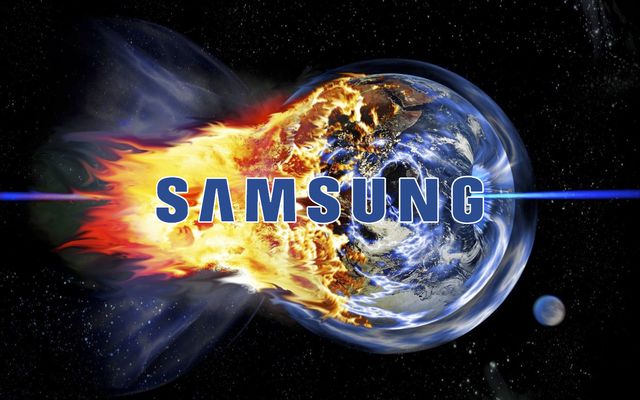
Samsung
Perhaps the most talked about news this week is Samsung's quarterly report. I do not know why, but the event, which is interesting primarily for analysts and players on the stock exchange, caused a whole bunch of discussions on the network. Often in very raised tones.
Tellingly, Samsung did not report anything particularly sensational. Of interest is the fact that the company's operating profit fell 4% compared to the same period last year. But if we talk specifically about the mobile division, then its profit amounted to $ 2.4 billion against $ 3.8 billion a year earlier. The company will try to make up for lost time in the second half of the year, for which they decided, firstly, not to postpone the announcements of new flagship devices, and secondly, to reduce the price of the Galaxy S6 and Galaxy S6 EDGE.
Link to news
 |
Samsung Galaxy Note 5 and Galaxy S6 EDGE Plus flagships |
To be honest, I don’t know why a drop in profits for some people is tantamount to the final and irreversible death of the company. Predictions that Samsung has a year left to live sound so wild that it doesn't even cause a smile, it's either such dubious humor, or a complete detachment from reality. It seems that for many, Samsung's success has become something personal, and most of all it resembles the mania of Ellochka the cannibal, who found herself a rival overseas and all day thinks only about how to wipe her nose.
If you let go of the overflowing emotions for a minute, it becomes clear that there is no surprise here. It has long been known that the company completely incorrectly estimated the demand for SGS6 and SGS6 EDGE; in reality, the ratio of sales of these versions of flagships was almost one to one, which no one expected even close. As a result, too many smartphones were produced, and too few of the second, and such a miscalculation could not go unnoticed.
[iframe url = '// www.youtube.com/embed/BGixDYEIJ4w' width = '640 ″ height =' 360 ″ scrolling = 'no' frameborder = '0 ″ marginheight =' 0 ']
How bad is it? From the point of view of the moment, there is nothing good about it, and it's not just about profit. A buyer who is sincerely ready to take a loan for the most advanced in the world, but which is not on sale for the SGS 6 EDGE, is unlikely to buy the classic SGS 6 instead. It will be an obvious compromise, a forced purchase of a lower class device. It's like buying a domestic car instead of a foreign car that you have dreamed of for a long time. Someone will wait all the way for EDGE, and someone will decide to look towards the products of other companies. And even if there is no curved screen there, but they have some advantages of their own, and the buyer will not have the feeling that circumstances forced him to buy a known less successful smartphone. Whether he will return to Samsung products later is an open question. Most buyers are not particularly interested in studying the pros and cons of dozens of smartphones, they just feel that their choice is 'right'. And if, due to circumstances, products Apple or Sony became the 'right' choice, then what's the point in returning to Korean smartphones in a year or two?
But from a long-term perspective, Edge's success is a rare piece of luck comparable to the unexpected success of the Note format. And the price that had to be paid for this discovery is not that high. Knowledge is often paid for with more.
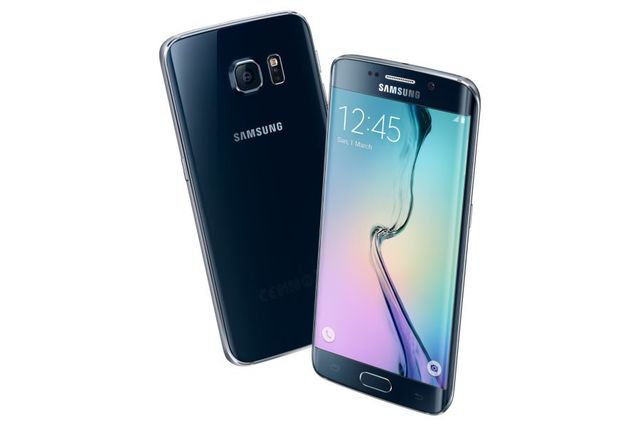
It's no secret that most large companies lack flexibility. Having chosen some kind of strategy and having received more or less positive results, the company will stick to it in the future. And it is far from a fact that he will be able to promptly make adjustments to it when the market situation changes. This is a classic situation, which is somewhat reminiscent of an old anecdote:
The grandmother gets on the train, and the tickets are checked in it.
– Grandma, – says the controller, – do you have a ticket?
“Yes,” she says, pointing.
“This one won't do,” says the conductor, looking at the ticket.
– How not good? – Granny is surprised. – Seven days was good, but now it is not good!
However, a large company is more likely not a retired grandmother, but a rhino rushing at a wild speed. Maybe this rhino has poor eyesight, but with its weight this is no longer its problem. Samsung has proved more than once that they can turn almost anything in their own way, either by introducing the fashion for huge shovels, or by contriving to break all possible sales records with the help of a 'plastic remnant' that only the lazy did not scold.
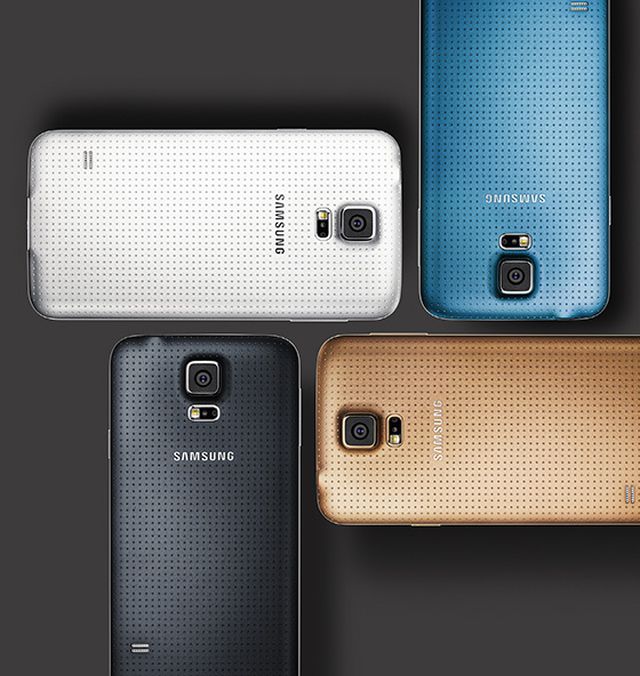
However, recently this Korean company has experienced a creative crisis, which was especially noticeable in the example of SGS5. No, this smartphone was not an outright failure, but it cannot be called a success either. Samsung has clearly overestimated its disruptive ability, deciding that it can do anything as a market leader. That any idea will be accepted with a bang simply because it is Samsung. Something like that in due time most companies have been ill, for example, the same Sony did a bunch of controversial things, sincerely believing that the slogan 'It’s a Sony' will justify everything. Yes, up to a certain point it really did, but over time, the lack of fresh ideas became noticeable even to connoisseurs of the brand. They recently tried to play a similar game in Microsoft, believing that you can sell anything under the brand Windows. Well, sales quickly showed that buyers are not at all as stupid as people think, and the company is now trying to get rid of the 'innovative' and 'inimitable' Windows 8 almost by force, by hook or by crook persuading buyers to upgrade up to “ten”. And they don't even take money for it.
SGS 5 was the first bell for the company, clearly showing that something went wrong and the scheme, code-named 'now banana!' crashed. The design a la adhesive plaster did not make much impression on users, and the Samsung label did not fix it much. The company could not offer anything else, the ideas incorporated in SGS3 have practically exhausted themselves, and how they can be replaced is an open question.
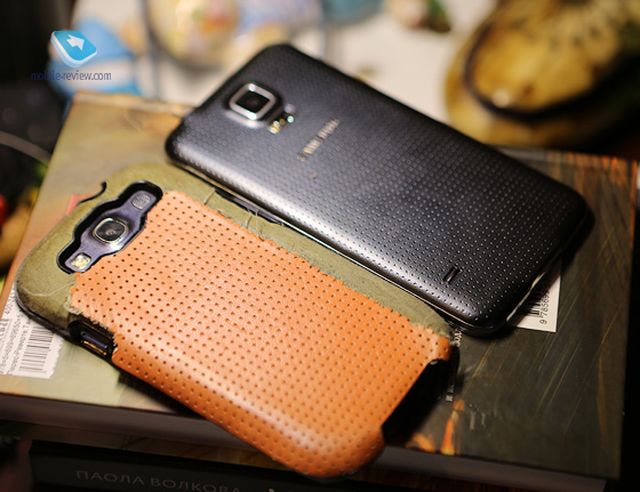
There is probably a special textbook for the top managers of large companies, which clearly says: 'In any incomprehensible situation, act like Apple. Specifically, copy iPhone '. It was under this slogan that SGS6 was created, in which the motives of the apple company are clearly traced. And I cannot say that the new Galaxy has become much more interesting from the metal bezel in the style iPhone. Yes, this is better than the 'Korean' design a la Galaxy S5, but clearly not the magic wand that will solve all problems in one fell swoop. It was again a solid smartphone, but it didn't smell of any wow effect.
None of this meant anything good to Samsung. It is impossible to live forever on the merits of the past, even a world famous champion has to prove his right to the championship belt from time to time. Koreans badly needed a bright and interesting model that would repeat the success of SGS3, once again proving that Samsung is rightfully at the top of Olympus. But where can I get it?
I do not know how this whole story would have ended and how soon the eminent, but fairly overgrown with fat boxer, would have received a stab in the back from daring young competitors. But it was at this point that the company almost accidentally created the Galaxy Edge. In all respects, it should have been a niche model, interesting to units. It was released mostly for show, just as a tribute to tradition, not counting on special demand. But it turned out differently – the model unexpectedly attracted a lot of attention, showed excellent sales and became Samsung's new business card. Stubbornly developing an already practically depleted diamond deposit and all trying to unearth another giant gem there, the company unexpectedly stumbled upon a gold mine and again found itself in the spotlight. Now it remains to develop it, but the company knows how to do this, the phrase of Archimedes 'give me a foothold and I will turn the earth' is practically their motto.
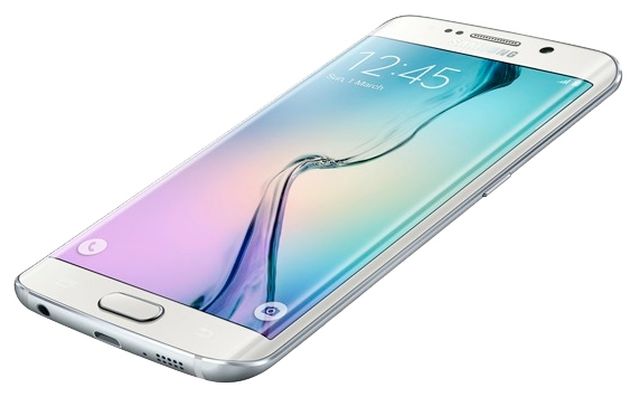
It is clearly not worth worrying about the fate of Samsung's flagships, the company has found how to hook users in addition to powerful hardware and a large display diagonal. And it is far from the fact that competitors will be able to quickly repeat all this, which will make smartphones truly unique for a while. The situation is much worse with budget models, which at any time can become the number one problem for the company.
Budget smartphones Samsung have always lost to the “Chinese” in terms of price / quality ratio, and it could not be otherwise. But this did not interfere with the company's success – the flagship models served as a kind of ram, which ensured sales of the rest of the line. In the eyes of buyers, “state employees” were a slightly simplified version of the world famous Galaxy S smartphones, no one would compare them with some “Chinese”. Since the company's flagships are “cooler” than their competitors, then the models of the middle price segment cannot be worse, for many it is obvious as two and two.
But the popularity of Chinese smartphones is growing more and more, Internet commerce is developing, primordially Chinese companies are entering the markets of other countries and are trying with all their might to hook buyers with something. But the budget Samsung smartphones are getting worse and worse, which is gradually beginning to catch the eye of even people far from technology. Smartphones like the Samsung Galaxy J1 clearly show that the company has lost a sense of proportion, and not only makes a mark-up for the brand, but considers it to be almost basic goods, to which some kind of hardware with some kind of software is attached as a bonus.
This is where the success of the Edge series becomes a minus rather than a plus. It will become even more difficult to pass off a state-of-the-art state employee as a slightly simplified version of the most technologically advanced flagship in the world, because there will be no curved screen and futuristic design there. This is no longer 'the same as the Galaxy S, only more fashionable', it is just a cheap and uninteresting smartphone that has nothing to do with the flagship, even in terms of design.
In my personal opinion, the ideal option is to gradually shift the 'classic' Galaxy to the mid-price segment, and consider the Edge as the one and only flagship. Yes, now it looks wild – how is it, the hardware is like the flagship, and the price segment is average? But you just need to gradually get used to the idea that the iron race has almost exhausted itself, that for the sake of a fifth gigabyte of memory or a 4K screen, no one will overpay for the flagship anyway. And that the difference between a 'workhorse' and a 'very best' smartphone must be something else.
Apple
But Apple has never had any problems with budget smartphones. No smartphone, no problem. True, there were problems with the iPhone 5c, but maybe precisely because its price for the budget segment did not pull in any way.
But the fact that beautiful ideas are more important than bare technical characteristics is well known in this company. That's just one thing to know, another thing to put into practice.
What kind of trump card is hidden in Apple in the sleeve – we can only guess. But I would very much like to believe that this is a trump ace, and not just another six.
In the meantime, you can look at the patents recently published by the US Patent and Trademark Office. For example, the one that talks about the system of 'capturing' user movements, reminiscent of the principle of operation of Microsoft Kinect.

Apple it is not the first time to take a long-worn idea and make it sparkle with new colors. It is quite possible that something like this can be done with technology a la Kinect. Nevertheless, for Microsoft this idea has not really taken off so far, which you can read about, for example, in this article:
Kinekt is not needed – http://riotpixels.com/kinekt-ne-nuzhen/
If the problem was only in the implementation of this idea, I would bet on Apple without hesitation. But here the problem is more likely in the content, and I don't think that the Apple company can solve it much better Microsoft
Link to news
HTC
They say that friends are known in trouble. As it turned out, this phrase applies to phone manufacturers to the same extent. It's easy to show touching concern for your users as long as things go uphill. But the way the company treats them is much more revealing, once something goes wrong with it.
A lot of big words have been said about HTC Sense over the years of its existence, and almost all of them had a foundation. This shell was originally created for people, they tried to make it as convenient and understandable as possible. In those years, the company fought for its reputation, it was she who was the key to future sales.
Well, times have changed. Now for the company, momentary profit is clearly more important.
Recently, on a number of English-language resources, the news that an advertisement appeared in HTC Sense. And not just anywhere, but right in the notification bar. In particular, the movie Fantastic Four was recently advertised in this way. Formally, we are talking about a notification about a new topic for HTC Sense, it was just by chance that a movie poster with the start date of screenings was there, but I very much doubt that even a baby will believe in such nonsense. And in my opinion, there is no justification for such things and cannot be.

It's not about advertising as such. Advertising is just a tool that can be used both for business and for harm. Take, for example, the Amazon Kindle, which had a special low-cost version that differed only in scrolls with advertisements. Those for whom the price of the original reading room was unbearable got a real chance to purchase it. For those who were annoyed by advertising, no one imposed anything and did not raise the prices for the basic version. This is an example of a competent approach, in which advertising was used to the place, not spoiling, but making life easier for users.
But here the situation is fundamentally different. Release HTC a cheap version of the flagship with advertising notifications, thus 'beating off' a discount for the end customer, everyone would be all for it. Someone would take advantage of this offer, some would not, but everything would be completely transparent from the very beginning and would not cause any negativity. But the way the company operates now does not go into any gate. To buy one of the most expensive flagships (and the story happened just on HTC One) and then one day start receiving advertising notifications from the company for it – this is beyond good and evil. And this momentary profit, which the company managed to get in this way HTC, will come back to haunt it more than once in the future. Reputational losses are also losses, and HTC is not Apple and not Samsung, which can afford and not that. The credit of users' trust is not a bottomless well, and the company has not paid its fees for a long time. How many people will buy the next smartphone of the company, knowing that they could be inundated with spam at any moment? Even if we consider that in some menu there this type of spam seems to be disabled.
Link to news
OnePlus
A rather curious incident happened to OnePlus the other day. Despite being widely known in narrow circles, this company can hardly be called large. Of course, OnePlus is clearly counting on the success of its new flagship, but at the same time, the company clearly cannot and do not want to produce it in huge quantities in advance and fill the shelves of the world's largest stores with it. The good old method of inviting is used to estimate demand and optimize production. Before buying a new item, a potential buyer first needs to leave a request on the site and defend a virtual queue, only then he will be able to purchase a long-awaited smartphone.
 |
OnePlus 2. Flagship 'killer' |
One problem is that OnePlus did not take into account that their main audience is 'geeks' and other technically competent brethren. And with all sorts of 'virtual queues' some of them cannot be stopped.
Jake Cooper is one of those who madly wants to acquire OnePlus 2, but is not at all eager to stand in a huge line for the right to give the company money. Without hesitation, he hacked the invite system and wrote a special script that helped him bypass 70,000 competitors in this queue in just the first night.

Fortunately for the company, Jake turned out to be a reasonable person and did not publish his script in the public domain. And even on the contrary, he warned the OnePlus programmers about the vulnerability he had found. In my opinion, this definitely deserves a smartphone.
Link to news
Urgent room
Just a couple of hours ago, @evleaks posted another leak regarding new Samsung smartphones.
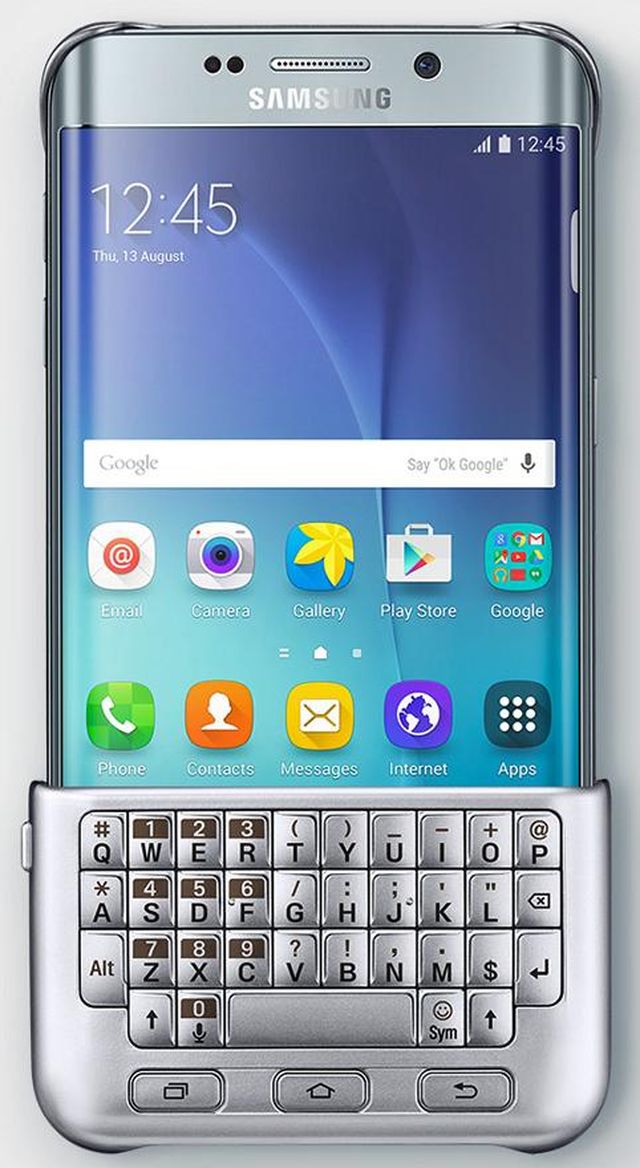
On the render, we see a certain accessory (?) That turns an ordinary smartphone into a qwerty candy bar with a full keyboard. How do you like this idea? In my opinion, it is very curious.

